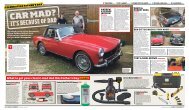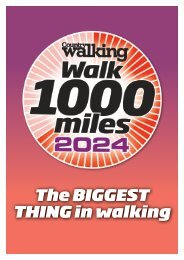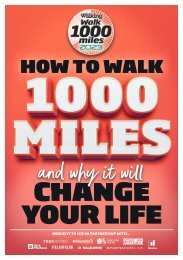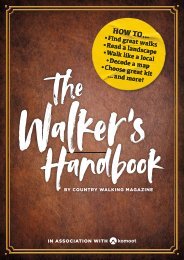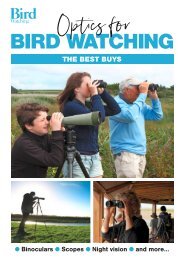Create successful ePaper yourself
Turn your PDF publications into a flip-book with our unique Google optimized e-Paper software.
Your horse’s care<br />
-<br />
Endocrine<br />
upsets<br />
When parts of the endocrine system fail<br />
to work properly, it can cause:<br />
Hypothyroidism is rare in adult horses,<br />
despite many conditions such as obesity,<br />
laminitis and insulin resistance being<br />
attributed to low concentrations of thyroid<br />
hormone. However, it may occur in foals<br />
born to mares who are fed inappropriate<br />
amounts of iodine during pregnancy.<br />
Thyroid adenoma You may have noticed<br />
that some older horses have thyroid<br />
glands that are very easy to feel. This is<br />
due to benign enlargement, which is really<br />
common and nothing to worry about.<br />
Pheochromocytoma This is a very rare<br />
type of tumour arising from the adrenal<br />
medulla. Some of these tumours will be<br />
‘functional’, which means they continue to<br />
produce adrenaline. The signs seen in horses<br />
therefore mimic situations where high levels<br />
of adrenaline are produced. Horses may have<br />
a high heart rate, increased breathing rate,<br />
anxiety, profuse sweating, dilated pupils,<br />
colic due to reduced intestinal motility and<br />
high blood sugar. While surgery to remove<br />
the adrenal gland would often be curative,<br />
the complexity of the surgery means that<br />
euthanasia is the more likely outcome.<br />
Primary hyperparathyroidism This occurs<br />
when the chief cells in the parathyroid<br />
secrete excessive amounts of parathyroid<br />
hormone and no longer respond to the<br />
negative feedback of calcium. The<br />
increased secretion is due to growth of a<br />
parathyroid adenoma, or parathyroid<br />
hyperplasia (over-growth of the gland). This<br />
results in increased blood calcium levels<br />
and, as this involves removing calcium from<br />
bones, the bones suffer as a consequence.<br />
Some older horses have<br />
enlarged thyroid glands,<br />
but generally this is<br />
nothing to worry about<br />
The bones of the face may become swollen,<br />
resulting in what’s known as ‘big head’ or<br />
‘rubber jaw’. Calcium removal from the long<br />
bones can lead to lameness, or even the risk<br />
of spontaneous fracture. Other signs include<br />
weight loss, lack of appetite, lethargy and colic.<br />
Diagnosis is via blood tests and the main<br />
treatment, which is curative, is removal of<br />
the enlarged parathyroid. However, as<br />
mentioned, finding the parathyroid, even<br />
when enlarged, is difficult. The best way to<br />
find it is through a nuclear scintigraphy scan<br />
to highlight the area of the neck where the<br />
parathyroid is located. Once this area is<br />
“Ovarian tumours<br />
may lead to stallionlike<br />
behaviour or<br />
persistent oestrus”<br />
Excessive calcium<br />
in the blood can<br />
result in lameness or<br />
spontaneous fractures<br />
narrowed down, the exact location can be<br />
pinpointed using ultrasonography. At this<br />
point, surgical removal may be possible.<br />
Ovarian tumour Granulosa cell tumours<br />
are the most common tumours of the<br />
reproductive tract of the mare. They can<br />
occur in mares of any age and may lead to<br />
behavioural changes, with either stallion-like<br />
behaviour or persistent oestrus/anoestrus.<br />
In other cases, behaviour is normal, but<br />
colic signs may occur. Diagnosis is based on<br />
blood testing for hormone levels, alongside<br />
palpation of the ovary per rectum and<br />
ultrasonography. Once the abnormal ovary is<br />
identified, it can be surgically removed, with<br />
a good prognosis. Surgery is most commonly<br />
performed laparoscopically (keyhole<br />
surgery) under standing sedation.<br />
92 your horse August 2019 www.yourhorse.co.uk










